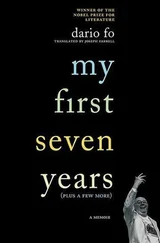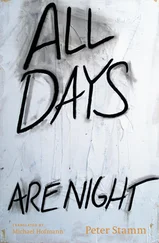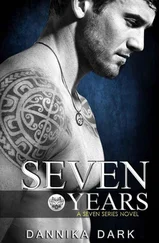Outside it was getting dark already. Sophie was holding our hands and alternately pulling us along and letting us drag her. Sonia was still irritated. Stop it! she said, stop that nonsense! Sophie didn’t seem to hear. She carried on, then Sonia pulled her hand away and stalked off ahead of us. At home she disappeared into her office and didn’t emerge till I called her down to dinner. Then she was in a good mood again, and said she had been able to get something done. You shouldn’t be so hard on Sophie, I said. I’m not hard on her, said Sonia, but she knows exactly how to infuriate me.
During supper, Sophie kept squinting across at Sonia. She wrinkled her nose, and her expression had something cunning. After we ate, she played by herself, but she stayed close to Sonia, until Sonia asked her if she wanted to make up.
Sonia’s parents came to visit more often. They spoiled Sophie, and brought her expensive presents, but they never passed up a chance to say what a bright child Sonia had been. Sonia’s father had read up on adoption, and had turned into an impassioned opponent. He was especially influenced by the texts of a former priest who had studied to become a psychotherapist. This man insisted that adoptive parents could never replace birth parents, and shouldn’t even make the attempt. An adopted child had a right to know about its birth parents, it needed to know what they could not give him, only in that way was there any chance for the child to break free of its origins and build a good relationship with its adoptive parents.
Sonia’s father sat on the sofa, feet apart. He looked from one of us to the other, as though on the brink of saying something vastly important. Then he stared at me, and said it would be an improvement if children were fostered, and adoption given up entirely. I stood and said that was stupid. Sophie wouldn’t have to know she was adopted. Not to tell an adopted child the truth can have grave consequences, said Sonia’s father. Children usually sensed sooner or later that there was something amiss. There was the Zurwehme case, if we remembered that. He was leaning forward now, and eyeing Sonia. A murderer and rapist.
Dieter Zurwehme had been arrested following a spectacular flight a few years back, his name had been all over the papers. He was the child of a German woman and a Polish forced laborer, and given up for adoption immediately after his birth, Sonia’s father explained. At the age of eleven, he found a letter from his birth mother. Look after my little sweetheart for me. But his adoptive parents refused to tell him about his parents. From that moment on, things went downhill with him. He resisted all efforts to discipline him, and at the age of twelve committed his first assault, on a fifteen-year-old girl. I think you know the rest of the story, said Sonia’s father.
I had to laugh. Do you think Sophie’s going to grow up to be a serial killer then? What do you think we should do? Put her out? Sonia too thought her father was overdoing it. She got up and stood next to me. Her father remained quite calm, he was now sitting back again. We knew how they loved our little Sophie more than anything in the world, and that they respected our decision. He just thought we should tell her the truth as early as possible, and give her a chance to know her biological parents. Sonia’s parents didn’t know that Sophie was mine, we had told them it was an anonymous adoption, and that we had no idea who the parents were. She’s five, I said.
To give up a child for adoption is an attack on life and nature’s way, Sonia’s father said, quoting his psychotherapist-priest, having a child adopted is a form of abortion. The child is refused space in its life. The birth parents often felt as though they’d murdered their child, and were therefore at risk of suicide. There were cases where the guilt of the parents was transmitted to the children, who then proceeded to be self-destructive.
I could have slapped him. There are perfectly good reasons for giving up a child for adoption, I said, for instance there are people who aren’t as well off as you are. It was the first time I had argued for Ivona. Poverty is no excuse for emotional obtuseness, said Sonia’s father. Sophie came wandering in, and he set her on his knee, as though to protect her from us. If anyone is emotionally obtuse here, then it’s you in your stupidity, I said, you and your tidy lives. I’d like to see you get by on a thousand marks a month. Sonia’s father remained perfectly calm. They hadn’t always been so wealthy as they were now. And unlike me, he knew what it was like to be poor, really dirt poor. After the war, they didn’t know on any one day what they’d get to eat on the next, and so on and so forth. That doesn’t give you the right to condemn other people, I said. He smiled agreeably. That’s a side of you I haven’t encountered before, the socialist. I said I had to make a few calls, and disappeared into my office in the basement.
Deep down he despises me, I thought, the fact that I hadn’t managed to get his daughter pregnant, and pass his genes on to another generation. He was completely different with the children of Sonia’s sister Carla than with Sophie, not more loving or doting, perhaps even a tad stricter. But he took them seriously, stimulated and challenged them, expected things from them. With Sophie he was so indulgent, it felt almost hurtful. It’s because she’s the youngest of his grandchildren, said Sonia. And because she’s a girl. Go on then, I said, protect him too. At least from that day forth, the subject of adoption was taboo in the house.
For all my passionate opposition to Sonia’s father, the argument with him had its effect. I was more and more surprised at Ivona’s failure to get in touch. She had to know that I would never keep her daughter from her, that I would have no objection if she occasionally — under some pretext, if necessary — spent an afternoon with Sophie. The more I thought about it, the more heartless I found her behavior. When I mentioned Ivona, Sonia never said anything, though we could talk about everything else much better than we could before. Perhaps our relationship was becoming more objective, but our shared responsibility gave it a new quality. Sophie was the most challenging project we had ever taken on together. Even though she was anything but difficult as a child. She had a lot of willpower, but she didn’t use it the way other children did, with hysterics and stubbornness. When we told her she had to do what we said, she would just look at us in silence, and the minute we turned away, do whatever she wanted. Basically, we were relieved that she didn’t require much in the way of attention, and was happy so long as she was left alone and not bothered overmuch.
School admission was a bit of a problem for her. The kindergarten teacher said Sophie was still emotionally unprepared. Sonia was indignant. A few days later she brought home some forms for a Waldorf school in Schwabing. I wasn’t wild about the idea. What little I knew about Rudolf Steiner was suspect, and his notion of architecture struck me as frankly idiotic. Someone had once referred to him as an overenthusiastic village schoolmaster, and that seemed about right to me. The school syllabus didn’t convince me either. In geometry they’ll be studying Nordic weaving patterns, I said, do you know what they are? Sonia shook her head. I’m sure it’s perfectly okay. Eurythmics, I read, parts of speech expressed through movement. I looked at Sonia. It’s just the beginning, she said. At least it’s a day school, and they give them organic lunches.
We took Sophie to look at the school, and she seemed to like it. An older girl took us on a tour of the buildings, and showed us everything. She wore a T-shirt that read: I CAN DANCE MY NAME. I looked at Sonia and smirked. She motioned to me to keep quiet.
Читать дальше












